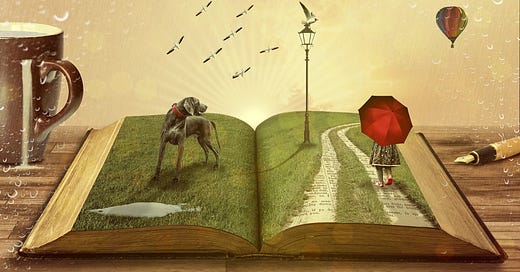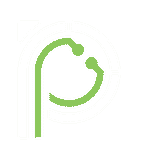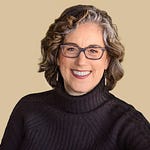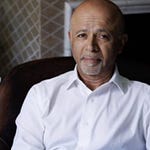Books discussed:
The Poppy War by R.F. Kuang
Midnight Library by Matt Haig
The Cat Who Saved Books by Sosuke Natsukawa
Books mentioned:
The Name of the Wind by Patrick Rothfuss
The Gentleman from Moscow by Amor Towles
A Psalm for the Wild-Built by Becky Chambers
God's Medical Record by Sosuke Natsukawa
Kafka on the Shore by Haruki Murakami
1Q84 by Haruki Murakami
The Wind-Up Bird Chronicle by Haruki Murakami
Norwegian Wood by Haruki Murakami
Father by Sharon Olds
The Gold Cell by Sharon Olds
Movies mentioned:
Everything Everywhere All at Once
Lin: So after our first Podcast Book Club.I think we all enjoyed it at least selfishly. We all enjoyed it, so we wanted to do it again. What books are you reading?
Zhang: The book that I'm reading now is part of a trilogy, and I'm on the third book. The first book is called The Poppy War, by R.F Kuang. It was written in 2018, and it is kind of [a] historical fantasy fiction book. I particularly like it because it reminds me of books I read in my childhood like Harry Potter or Eragon–things like that. So, even though it's quite a thick book for me, it's a very easy read. In essence it's based on the second Sino-Japanese war and the Song dynasty. As an Asian American, I feel a lot of kinship to that book, since I think it's kind of the first of its kind. But at the same time the fantasy part comes in because it's like a made up land where magic, or shamanism, is real. So there's that component. And I think the author does a really great job of weaving parts of history, really developing the characters, but also incorporating this magical realism into it. I’ve liked it so much that I've finished the first and second books and on the third one now.
Lin: So you know it's funny. I've picked up this book and the other books several times in the bookstore like I buy it, and then I picked it up. So I guess what made you pick it up. In the first place?
Zhang: Yeah, I think I was in the bookstore, and I read like the first chapter, and I was immediately hooked because it was kind of a light read, but it made me feel very warm inside, since it was the type of book I had growing up.t Then, as I read more and more into it, one thing that really resonated with with me was the idea of the history behind it, and the idea of being like Asian, was also like incorporated into it. I think it was done really well, since it made me question my own identity, and the power of history–how that really shapes we are, you know, as people in general, so I think that's what made me continue to read it. And the characters are really well to which I mentioned.
Lin: I just saw that I remember reading somebody because I was thinking about reading this book. Now we're definitely going to pick it up because she recommended that somebody said it was like The Name of the Wind. Have you read that book?
Zhang: I haven't.
Lin: It's like one of the best fantasy books I've ever read. I think this name of the wind came up first. It's a trilogy, but the third book is like one of those–but it sounds like it's ever going to come out because the guy's been working on it for just. They’re called the King killer chronicles.
I mean it's there's that way of describing scenes and events that are very kind of comforting. They really suck you in right. It's been a while since I read it. It’s about this man who became a great wizard, and learned the power of the wind. It talked about how he really came from nothing and he's lost his power somehow. We don't know how he's lost his power, but they've got the training sequence, how he got his power, and how he learned to call them in the–but there's also a lot of parts in that he also learns healing. You know a lot of healing arts and music, and you know he learns how to play like a leer or some instrument like that. It's very fascinating. But that just reminded me of the other book I think we may have mentioned last time, The Gentleman from Moscow? Didn't you say you read that?
Zhang: I was going to pick it up since you recommended it!
Lin: Yeah, it has that same kind of a little bit of analogy and comforting feel in some of the scenes right like where you're kind of drawn to it. And there's this kind of luscious sense of description, I guess. But, Chloe, have you read any of these books, or what are you reading now?
Sales: I have not read any of these books, but every time you mention one I just write it down, so I'm excited to look into them. I most recently read this book called the Midnight Library by Matt Haig. Have either of you heard of that one?
It's a fantastic heartwarming book, and I think one one that talks a lot about mental health, one that talks a lot about different lives that you could lead based on a single decision. It's very much like similar to the Marvel cinematic universe, except every universe is so different from the others, and each one is different because our main character can chose a different life.
Lin: The choice is really small. So is it more like Everything Everywhere All at Once. Yeah, it's a lot like that, but more fantasy. I feel like everything everywhere all at once is more sci-fi. This one is more like
Sales: The character reaches a certain point in that version of that life where she gets bored or doesn't like the life anymore. And then she finds herself back in this midnight library. She picks up a different book, and it slips into that life.
Lin: Yeah, that reminds me a little bit of this book I’m reading now. It's called a A Psalm for the Wild-Built. Have you heard of this book? It's a Hugo award winner. It's about monks and robots–short book. I haven't finished it. It's about kind of an alternate world where robots become sentient, and they all decided–we can't be around humanity anymore, we're going to go to the wilderness.
That just kind of reminds me of alternate choices like your choices in life. So je sort of decides to make a big choice about his life to change his trajectory. It reminded me also of things like burnout and medicine. You know how people can be burnt out, and suddenly with what they're doing, even though they may love it, and then decide to do something totally different. So I'll let you know how it turns out–I think, a series also, but there's just 2 books
Lin: Last time you mentioned The Cat Who Saved Books. What did you think about that?
Zhang: Yeah, it's funny, because a lot of our books have to do with books during this talk.
Lin: There’s a term, it's called autofiction. There was a New York Times review about some booking.
Zhang: Cool! So essentially like this book is a translation of a Japanese novel about this cat who helps this little boy at a time of grief when his grandfather passes. They go through these kind of surreal missions to consider what is the value of books, and why do we read, especially as our world becomes more technological events and people become more busy.
I thought it was a really great like quick read. One thing I always think about with these books is that some things might get lost in translation, and I wonder if that might happen in this book. I felt like it was a very simple read for lack of a better word. Itreally helped me think, Why is it that in my busy days I keep reading? And what is the purpose of reading all this information like, what is my aim? What do I want to do with the information I gain? Does it matter how much of this information I retain? I really enjoyed it. What did you think of it?
Lin: I did spend too much time for each–I don't know 3 or 4 stories, right?I spent a little time kind of trying to figure out the moral of each one, and you know it kept me kind of thinking about it because it sort of would change with every story.
I found out later the author is a doctor. So I wonder if that influenced our subconscious choice. I guess his first book was called God's Medical Record, so I'll have to pick it up.
I mean, you gotta wonder how he decided to start writing right? You know I don't know how any doctor I mean. There's so many stories here just like Haruki Murakami.
The one book I read was his non-fiction book about how he became a novelist. It's a collection of essays. His story about how he became a novelist was when he was watching a Japanese baseball game and suddenly he decided that “I could write a novel. He had a cafe and jazz cafe, and he had been doing that for years, and just out of the blue, he thought, “Oh, I could write a novel during a baseball game.” There's other stories he tells about how he just sort of came upon him. He doesn't really know why he sat down for a year, and he wrote a novel and did this kind of interesting method. He couldn't figure out how to write because he wasn't writing in the traditional Japanese novelistic way in terms of his language. So what he did was just to get started. He wrote in English, and then translated it back to Japanese, so it simplified his thinking, maybe, and his mode of language. It was very interesting, so I really enjoyed it. But it didn't make me necessarily want to pick up his other books. But maybe I should–have you read any of his books.
Zhang: I have read Kafka on the Shore. One of his famous books is 1Q84 but it’s incredibly thick. I also read the Wind-Up Bird Chronicles, and I think he had a collection of short stories that the name escapes me. Personally, I find a lot of his stories–because they so border all of Surrealism– blend in together. So what I think I leave with when I'm reading his stories is kind of like ideas, images, or really beautiful phrases while the stories themselves kind of fade away with time.
Lin: Yeah, I was tempted to pick up Norwegian Wood. I think that's one of his more accessible books. But maybe I, it sounds like something you have to be in the mood to read. What should we read for next week?
Zhang: One book that I want to read is Father bySharon Olds– it's a collection of poems. She recently was interviewed by The New York Times given her legacy as a poet, especially a female poet in this generation. I read her collection of poems called The Gold Cell.
This is a different collection that's focused on her relationship with her father. She is really good as a poet in delving into her relationship with different people. I read a couple of our poems in this collection, and they talk a lot about the health of her father because she wrote it when her father was in the hospital suffering from cancer. So, I think he'll be really interested to read them as a physician and have a different lens.
Lin: I normally don't read collections of poetry, but with those endorsements I’ll try it.
Zhang: I don't know how good it is, but I will read it, and I can let you guys know.
Lin: Well, it's tough, because I think I find it, even though you know poetry collections are so sure it's just so hard to get through them right.
Zhang: I will say that her poems are usually very accessible, and when she first began writing a lot of magazines or literary journals rejected her because they thought that she was too “domestic” or “womanly” and “simple.”
Lin: There you have it. These are your recommendations for the wee, if you've got some time, from your friendly group from panacea health. So if you have any suggestions, send them on our way.











Share this post